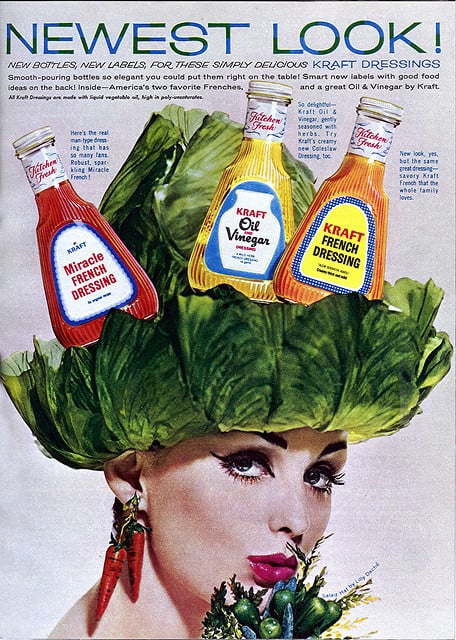Have we not heard this enough times? Eat your vegetables. Have a big bowl of salad for lunch. Feast only on salads at the buffet table. Eat salads, stay healthy, live long. Have a salad daily, a salad for a meal and so on. But are all salads good? Also, are salads always good for you?
In this article, let me attempt answering the first question for you.
Yes, eating enough vegetables is vital to good health. The Food Pyramids of USDA and NIN amply bring home that for us.
Yes, eating salads are a great way to increase variety in routine meals. Salads are low in calories, add colour, zest, fibre, anti oxidants and every other good thing you may find in diet and nutrition books.
Which salad gives you all of this?
A salad that is made from fresh produce, not old.
A freshly harvested fruit or vegetable is still living and breathing. If harvested when fully formed, the vegetable has the maximum nutrient content. With each passing day after harvest, fruits and vegetables lose moisture and valuable nutrients through surface. Losses can range from 5% for Vitamin B to even 70% for Vitamin C depending on harvest procedure, type of post harvest handling, effective cold storage (or not). Fat soluble vitamins are lost if the produce is exposed to heat / light.
Fresh vegetables, fresh fruits work best in a salad both in terms of flavour and nutrition. If you have ever dug into a salad which had one rotten tomato, you will understand this easily. The reasons we include salads in a meal are the vitamins, minerals, fibre, phytonutrients and anti oxidants that fresh produce has to offer. The real purpose of a salad is defeated if we use shrivelled, nearly dying vegetables.
A salad that is NOT drenched in sugary, creamy, high fat dressings.

Again, if you are stuffing yourself with a salad slathered in gooey, creamy, cheesy dressings, you have just added a few hundreds of calories from sugar and fat, thousands of mg of sodium and thwarted all attempts to ‘eat healthy’. Choose dressings with good fats such as olive oil, skim milk yoghurt or low fat Greek yoghurt. Include dressings such as those with herbs, lemon juice, honey mustard, balsamic vinaigrette, fresh pesto. Avoid dressings which have ingredients such as sour cream, any type of cheese, maple syrup, high fructose corn syrup.

A salad that does not have deep fried foods as part of it’s ingredients.
Fried chicken salad, lettuce salad topped with deep fried croutons, crispy noodles, deep fried potatoes, potato straws, fried pork or any other deep fried ingredients to add crunch or taste to salad are harming your health and waistline.
Want crunch in your salad without the guilt of excess fat or sodium or calories? Add grilled vegetables or baked croutons. Add healthy nuts and seeds such as toasted walnuts, almonds, toasted melon seeds or pumpkin seeds to add nutty crunch.*
Also, a salad that is assembled in hygienic conditions and stored safely before consumption.
Every single vegetable or fruit used in a salad, (especially raw salads) has to be thoroughly rinsed before peeling/chopping. Rinsing after peeling or chopping increases chances of contamination and nutrient losses. After rinsing, the ingredients have to be drained clean of the wash water too.
Bagged salad, pre cut greens, are all potential sources of bacterial contamination.
No salad ingredient should come in contact with raw meat.
Use clean cutting boards, knives and utensils while assembling salads.
Take care to store the salad as well as the dressings in a cool dark place, preferably covered in the fridge. If dressing is store bought, store as per instructions. Sniff, taste a wee bit before using each time to make sure it is still usable.
Assembling a simple home made salad is often easier than shopping for necessary ingredients and dressings. Enjoy fresh home made salads any time!
Happy, healthy eating.
*Nuts in salads – People who are allergic to tree nuts or all nuts should avoid them in salads too.




No comments:
Post a Comment